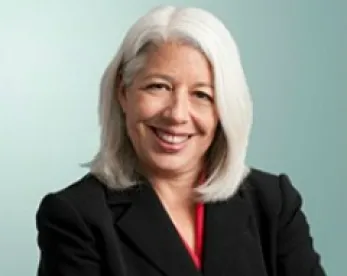On March 20, 2014, the Arkansas Supreme Court reversed a $1.2 billion judgment against Johnson & Johnson and its related companies over alleged Medicaid fraud stemming from the off-label marketing of the drug Risperdal. This decision comes on the heels of the January 28, 2014 reversal by the Louisiana Supreme Court of a $330 million Medicaid false claims verdict, also stemming from Risperdal marketing.
The two cases share many similarities:
-
Both Arkansas and Louisiana opted out of the $2.2 billion federal/multi-state false claims settlement over Risperdal marketing to pursue their own individual state false claims cases.
-
The state Attorneys General of Arkansas and Louisiana each pursued the Risperdal case using private counsel, retained on a contingency fee basis as “special” assistant attorneys general.
-
Both Arkansas and Louisiana have state false claims statutes that do not exactly mirror the federal false claims act.
-
In both the Arkansas and Louisiana cases, the state chose to forgo seeking any actual Medicaid damages and limited their monetary demands to statutory penalties, attorneys’ fees and costs, likely as a means to forgo sharing any eventual Medicaid-based award with the federal government.
-
In both cases, the defendants argued that the state false claims statutes were inapplicable to the conduct alleged by the state in pre-trial motions, in summary judgment motions, in post-trial motions, and on appeal, before finally prevailing in front of the state supreme court.
The Louisiana case was brought under the state’s Medicaid false claims act, and alleged the off-label marketing of Risperdal caused false claims to be submitted to, and paid by, the state Medicaid Program. After a liability verdict in Louisiana’s favor, the trial court awarded $257.7 million in civil penalties, $70 million in attorneys’ fees, and another $3 million in costs. By a 5-4 vote the Louisiana Supreme Court found that the false claims verdict could not stand because the Louisiana statute only applied if a false claim was knowingly submitted to Medicaid by a Louisiana health care provider or its billing agent, and the defendant companies were not in fact a Louisiana health care provider or billing agent.
The Arkansas case was brought under the Arkansas Medicaid false claims act and consumer protection statute, alleging that the drug manufacturer made false statements of material fact in connection with Medicaid claims for Risperdal, and promoted the drug through deceptive marketing practices. Based upon a jury verdict of liability, the trial court assessed penalties of $1.19 billion on the false claims allegations and $11 million on the consumer-based violations, and awarded $181 million attorneys’ fees and another $300,000 in costs. A unanimous Arkansas Supreme Court found the false claims verdict could not stand because the false claims statutory provision relied on by the state was only applicable to institutional Medicaid providers, which did not include the defendant companies. The consumer-based violation was reversed by a divided court on evidentiary grounds, based on improper and prejudicial use of an FDA warning letter that was used throughout the trial and referred to fifteen times in closing arguments.
The Arkansas Supreme Court issued a separate ruling indicating that because of the reversal of the verdicts, it would not address defense arguments regarding the state’s use of private counsel on a contingency basis, nor would it address questions involving the federal share of any award.
State Attorneys General are frequently lobbied by private counsel to forgo joining national settlements of health care false claims cases, in lieu of pursuing individual cases in state court. These cases can be lucrative for the chosen private counsel. Questions have been raised regarding the propriety of these contingency fee agreements and there are also questions as to whether these Medicaid-based cases are being pursued through strategies meant to disadvantage the federal government.
All states’ Medicaid costs are paid on a matching basis by federal and state funds. When false claims cases are handled “globally” by teams of federal and state attorneys, the Medicaid-based recoveries are allocated between federal and state funds on the same matching basis. When states pursue these cases individually, a federal directive advises that all state Medicaid-based recoveries in false claims cases be shared with the federal government, including damages, penalties, attorneys’ fees and costs awards. Despite that directive, private counsel frequently argue that in cases like Risperdal, forgoing Medicaid damages negates the need to share any recoveries with the federal government.
This strategy did not work in Arkansas and Louisiana. Instead of joining the national settlements, and sharing Medicaid-based judgments with the federal government, Arkansas and Louisiana will receive nothing. These judgments likely will be read carefully by state Attorneys General and taken into consideration when they are asked in the future to opt out of national false claims settlements and instead place their state’s interests in the hands of private contingency fee counsel.




 />i
/>i
